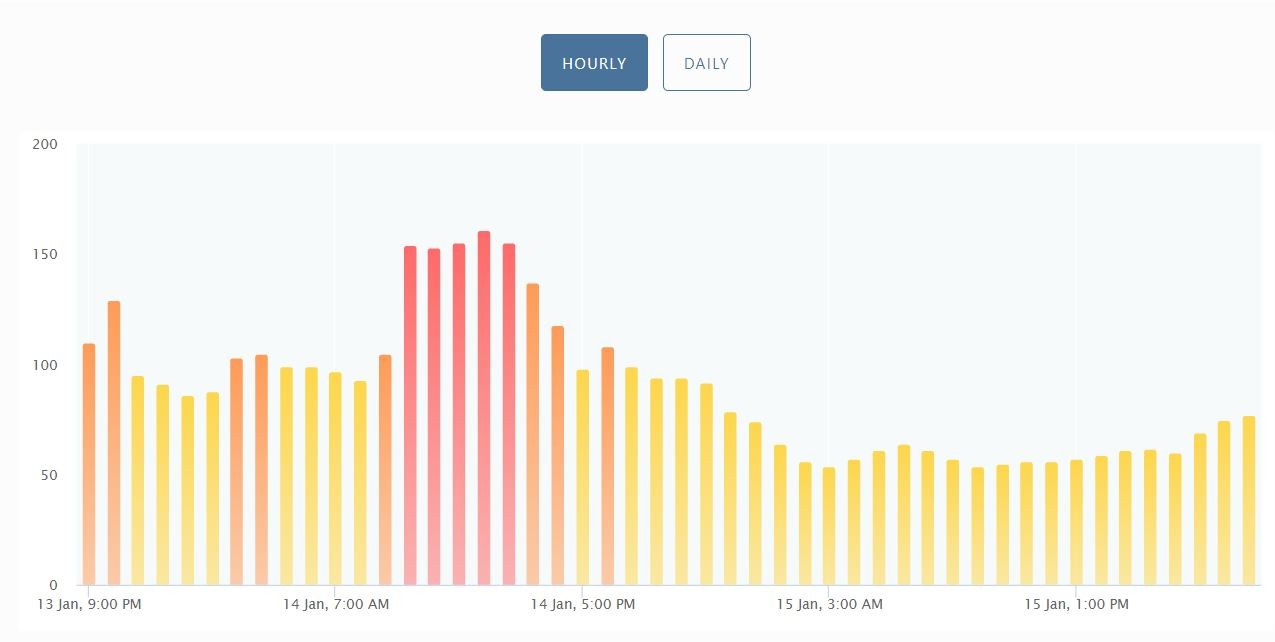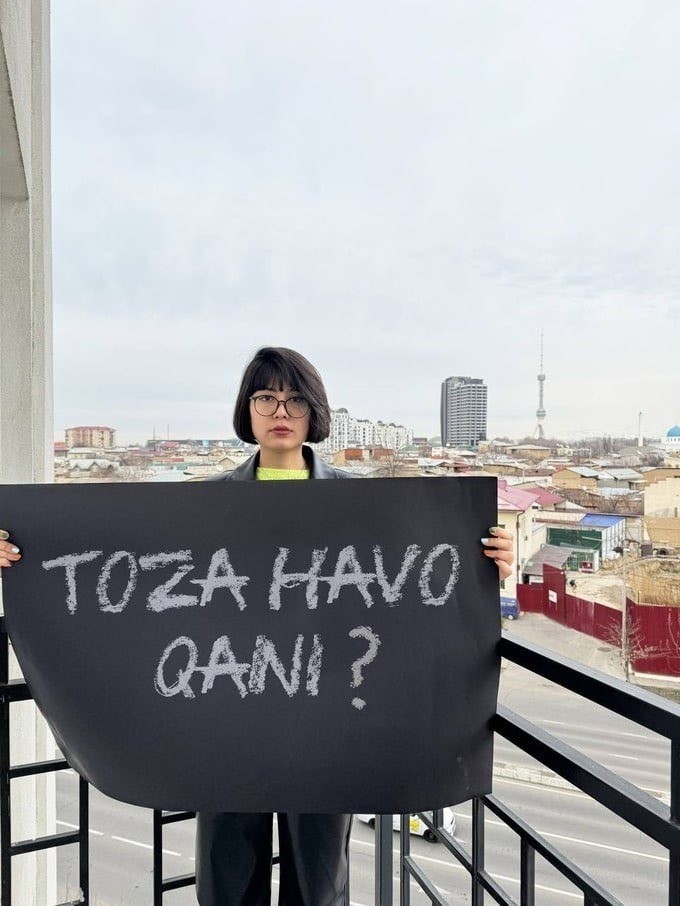Uzbekistan’s capital, Tashkent, has long been ranked among the worst cities in the world with the highest levels of air pollution by the international service, IQAir. In 2022, the portal ranked Tashkent as the worst in the world in terms of air pollution based on data from Uzhydromet (State Hydrometeorological Service). Tashkent is particularly prone to fine particles of PM-2.5, which is the most dangerous indicator for health, according to the World Health Organization.
On January 12th, the Ministry of Ecology, Environmental Protection and Climate Change of Uzbekistan stated that increasing levels of air pollution in Tashkent are caused by emissions from coal-burning heat and power plants, and from motor vehicles. The levels of air pollution are also due to the illegal felling of 49,000 trees and construction work being carried out without planning permission.
Another contributing factor is an increase in the amount of pollutants being emitted by vehicles, the number of which is growing rapidly. In 2021, there were 3.14 million cars, but by 2023 there were 4.6 million, an increase of 32%. On average, 730,000 vehicles are on the move in Tashkent every day, with between 160,000 to 300,000 entering the capital from the regions. Cars using A-80 gasoline, which does not meet international standards, emit more harmful substances into the atmosphere.
The burning of coal to generate electricity is also on the rise. In 2019, 3.9 million tons of coal were used; by 2022, this had increased to 5.3 million tons, and by the end of 2023 it was 6.7 million tons, the ministry stated.
The levels of air pollution are also due to the fact that Tashkent is located is surrounded by mountains, meaning the wind cannot circulate, and the polluted air is not blown away.
In order to reduce air pollution in Tashkent, the ministry proposed the following measures:
– a ban on motor fuel below the Euro-4 standard (AI-80 gasoline);
– a restriction on the movement of cargo vehicles in Tashkent weighing more than 3.5- and 12-tons during rush hour (from 07:00 to 10:00 and from 17:00 to 20:00);
– a ban on vehicles manufactured before 2010;
– providing preferential treatment and subsidies to owners of electric vehicles;
– a scheme to reduce congestion wherein vehicles with odd number plates are allowed to drive on odd days, and those with even numbers on even days;
– pedestrianized zones in the center of the city;
– the transfer of public transport to the use of electric and gas-cylinder fuel;
– a moratorium on construction except for facilities of social and state significance;
– a ban in the Tashkent region on the use of coal for industrial purposes;
– the creation of a “green belt” around the city.
Meanwhile, on the same day, activists in Tashkent staged a flash mob to protest about the state of affairs. Among those fighting for the right to life and health were eco-blogger, Mutabar Khushvaktova (Urikguli), the singer, Konsta, stand-up comedian, Mirshakar Faizullaev, bloggers Umid Gafurov and Mirzayor Erkinov, and YouTube podcast co-authors Sarvinoz Tolibayeva and Sa’dulla Abdullaev. Those in attendance expresses their fears that the government’s response may prove to be a “one-off,” when a long-term strategy is desperately needed.

On January 14th, the air in Tashkent exceeded the permissible level of pollution by 11.4 times.



